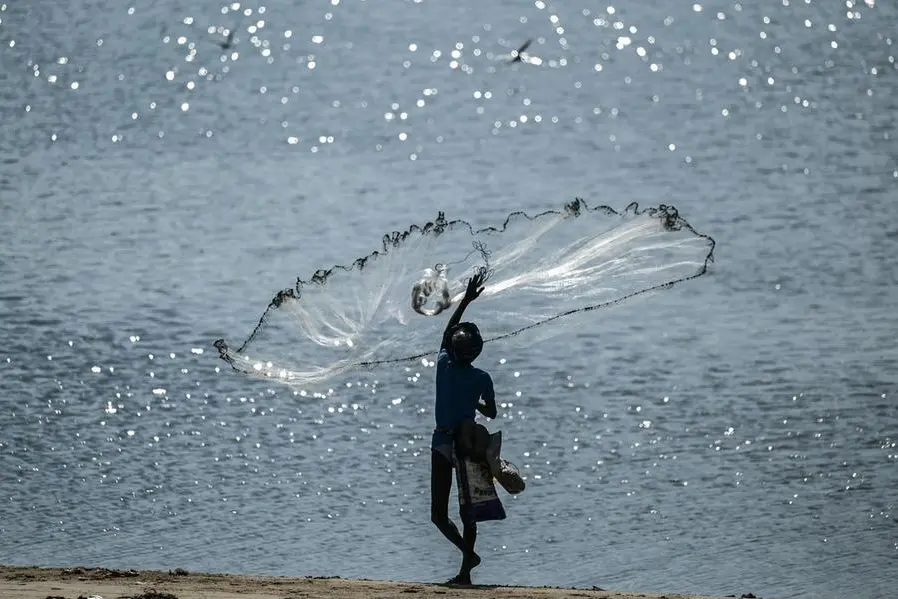PHOTO
A new global agreement on tackling fisheries subsidies that lead to overcapacity and overfishing could be sealed when the World Trade Organization holds its ministerial conference next week.
Negotiations in recent months at the WTO headquarters in Geneva have enabled a draft text to be brought forward, ahead of the biennial meeting being held in Abu Dhabi from February 26 to 29.
India -- which is often described as an obstructionist element in trade talks -- is calling all the shots, trade economist Christine McDaniel told AFP.
McDaniel leads the Future Fisheries Management initiative in the Mercatus Center research unit at George Mason University, outside Washington.
- Which countries are subsidising fishing? -
McDaniel: "Recent research shows that the top five subsidisers are China, the European Union, the United States, South Korea and Japan.
"Combined, those five represent 58 percent of total global subsidies.
"About two-thirds of China's subsidies are capacity-enhancing subsidies -- building bigger vessels and tools to scrape large swathes of the ocean floor quickly.
"The text is a huge step in the right direction. Hats off to WTO members for getting this far. But recent efforts by India and others to water it down threaten to undermine the effectiveness of the agreement.
"If developing countries like India are exempt for 25 years, then it would undermine the effectiveness of the entire agreement."
- Why does India want a long transition period? -
McDaniel: "India is often a naysayer on trade agreements.
"It's not clear if they really don't want to do this deal or if they are trying to gain leverage in other areas. That is a common negotiating tactic. And India has done that in the past. But it's unfortunate, because they can be quite obstructionist.
"India says they are a victim of overfishing by subsidised large foreign vessels -- eg China -- fishing in and around their waters.
"That would suggest India actually has a lot to gain from this agreement.
"Recent research by two prominent Indian economists demonstrates with substantial data and evidence that India's fishers suffer from subsidised overfishing from large foreign vessels.
"It shows that India's small-scale fishers and local coastal communities are especially hurt from that overfishing activity, which has led to declining catches for the locals.
"Meanwhile many Caribbean countries have said they don't want a long transition period.
"If India really wants to be a leader of the global south, this is a great opportunity for them to stand up for coastal nations that are developing countries that are victims of large foreign fleets."
- How could an agreement work without sanctions? -
McDaniel: "Signing the agreement is one thing, but the real success or failure of it will depend on implementation. All of our research shows that transparency will be essential to achieve effective implementation of this agreement.
"Fishers need readily available information on which fish stocks have been overfished and which have not. Coastal nations need to be transparent on their determinations of overfishing activities.
"And the citizens of countries deserve transparency on the access (to waters) agreements their governments are signing with foreign fishers.
"There's a wide consensus among researchers and experts and practitioners in this area that you need to automate the transparency. Because self-reporting does not work. There are no incentives to ensure self-reporting. If anything, there are disincentives to self-report.
"Interpol, or something like it, could be like a global data system that all participating countries can access and can see which physical fishing vessels have been reported.
"That would be a tough role for the WTO to play. But the WTO could put in the text that transparency is a requirement, and then let it be up to the countries to figure out how to do it right.
"But self-reporting may not be enough."





















